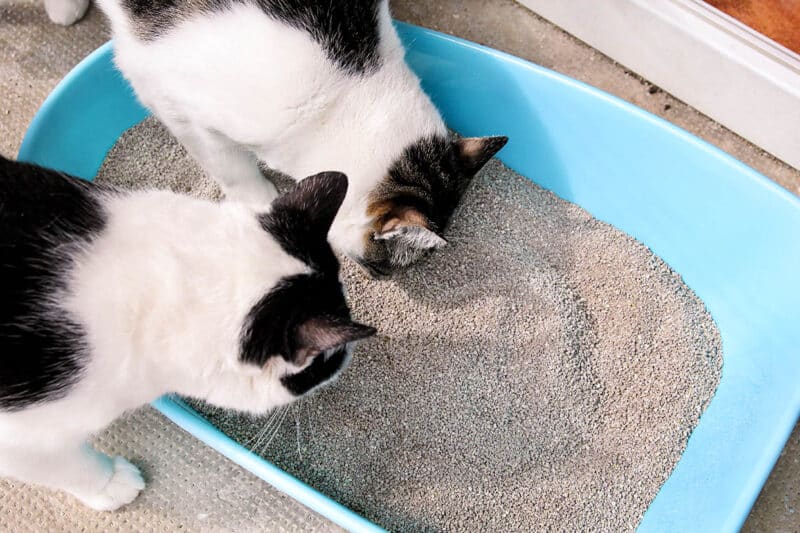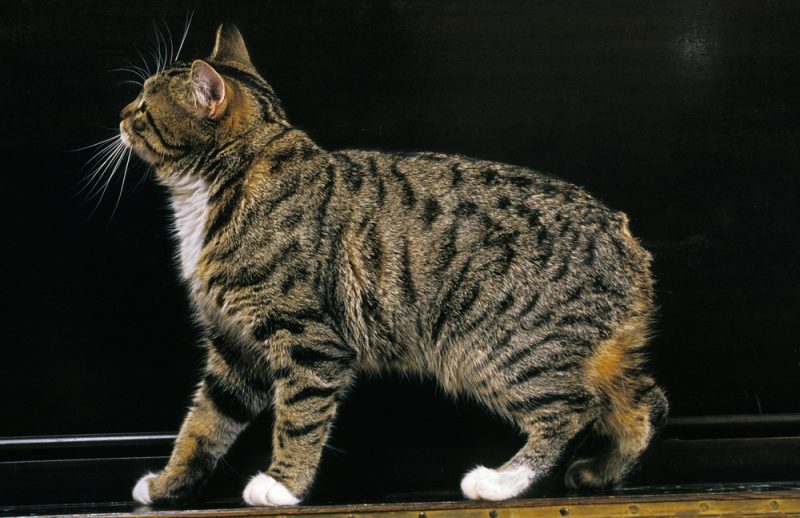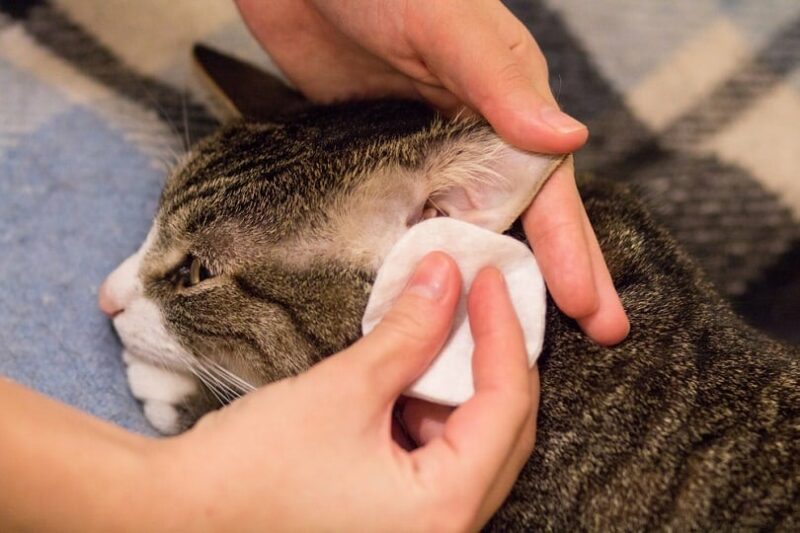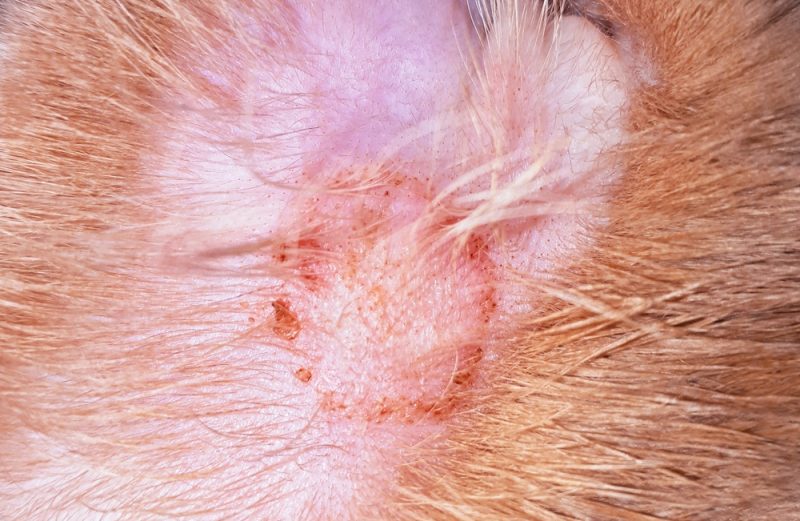Have you seen some worms crawling in your cat’s stool, or do you want to know what your veterinarian checks for when they run a fecal parasite screening? Did you know there are more than just intestinal parasites to worry about? Let’s look at some more common parasites you should know about.

Signs of Parasites in Cats
Parasites can be internal or external, living either in your cat’s gut or living on their skin. External parasites can cause pruritus or itching, as well as transmit a variety of diseases. They can lead to secondary skin infections and even anemia with a high enough parasite load.
Gastrointestinal parasites are common, especially in cats that go outdoors, with estimates as high as 45% of some populations1. They may cause an unthrifty appearance, with a dull hair coat and weight loss.
- Vomiting
- Diarrhea
- Lethargy
- Pale gums indicating anemia
Parasites in our cats can be problematic to deal with because some are zoonotic and transmissible to people.

The 9 Gross But Common Cat Parasites
1. Fleas
Fleas are the most common parasite affecting cats. They can even affect indoor kitties if a flea hitches a ride on your clothes or even your dog. Fleas make most cats very itchy, but they can also transmit diseases.
Fleas reproduce quickly, and their eggs often fall off your cat’s body and into the environment. As such, it can take months to get rid of fleas once you have an infestation.
- Flea allergy dermatitis
- Anemia from blood loss
- Tapeworms
- Feline infectious anemia
Treatment
The best treatment is prevention.
- Revolution
- Cheristin
- Comfortis
- Advantage
- Seresto
If your cat shows signs of itchiness or their skin has wounds, contact your veterinarian for an exam. Your cat may need antibiotics or even steroids to control itching.
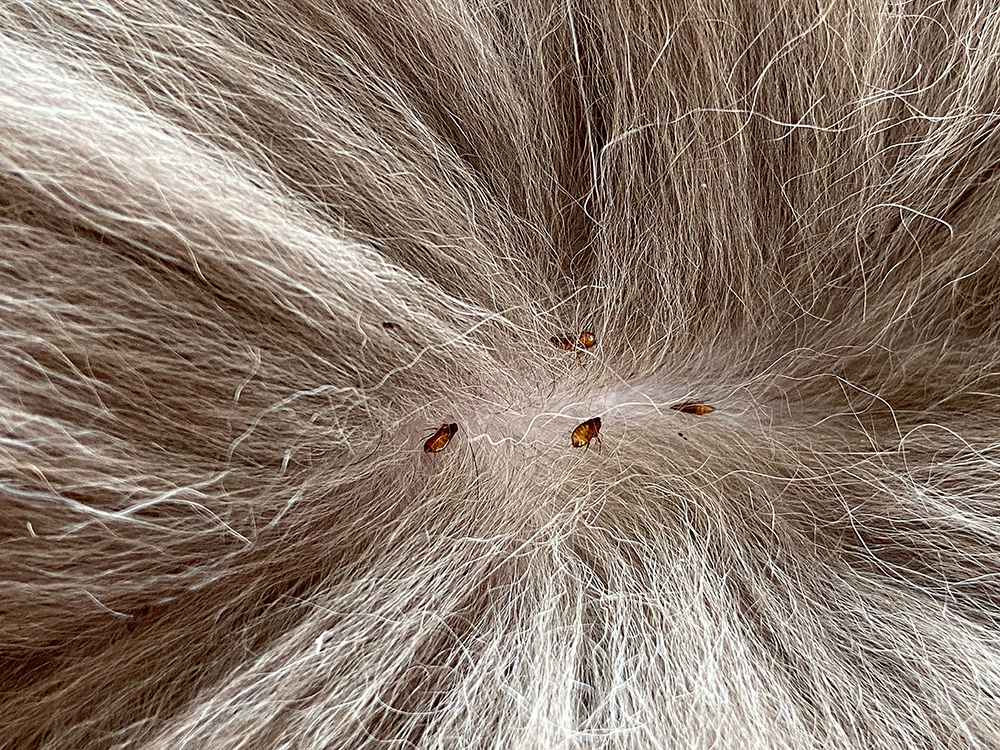
2. Ticks
Ticks are less common in our indoor cats but are a parasite you should know. Ticks attach to cats and feed on blood to move through their different life stages. Signs of a tick-borne illness include weakness, fever, lethargy, and even paralysis.
- Hemobartonellosis
- Tularemia
- Cytauxzoonosis
Treatment
If your cat has ticks or goes outside, use a tick prevention product, such as Revolution Plus or a Seresto collar. Your veterinarian may recommend blood tests to check for parasites. Depending on what they’re seeing, they may prescribe different medications, such as doxycycline or enrofloxacin.
3. Heartworms
Heartworms are quite a scary parasite. They are transmitted by mosquitoes. After your cat is bitten and ends up with microfilaria in their bloodstream, these immature heartworms move to the heart, where they take up residence.
Heartworms can cause an inflammatory response in your cat’s lungs and heart damage. Unfortunately, while there are treatments for heartworm in dogs, there aren’t in cats.
Treatment
Use a heartworm prevention product in your cat every single month. Revolution or Revolution Plus are excellent and combine flea prevention with heartworm prevention. If your cat has heartworms, your veterinarian will assess them with regular exams and X-rays to look for lung changes. Your cat may need steroids or other medications to decrease inflammation.
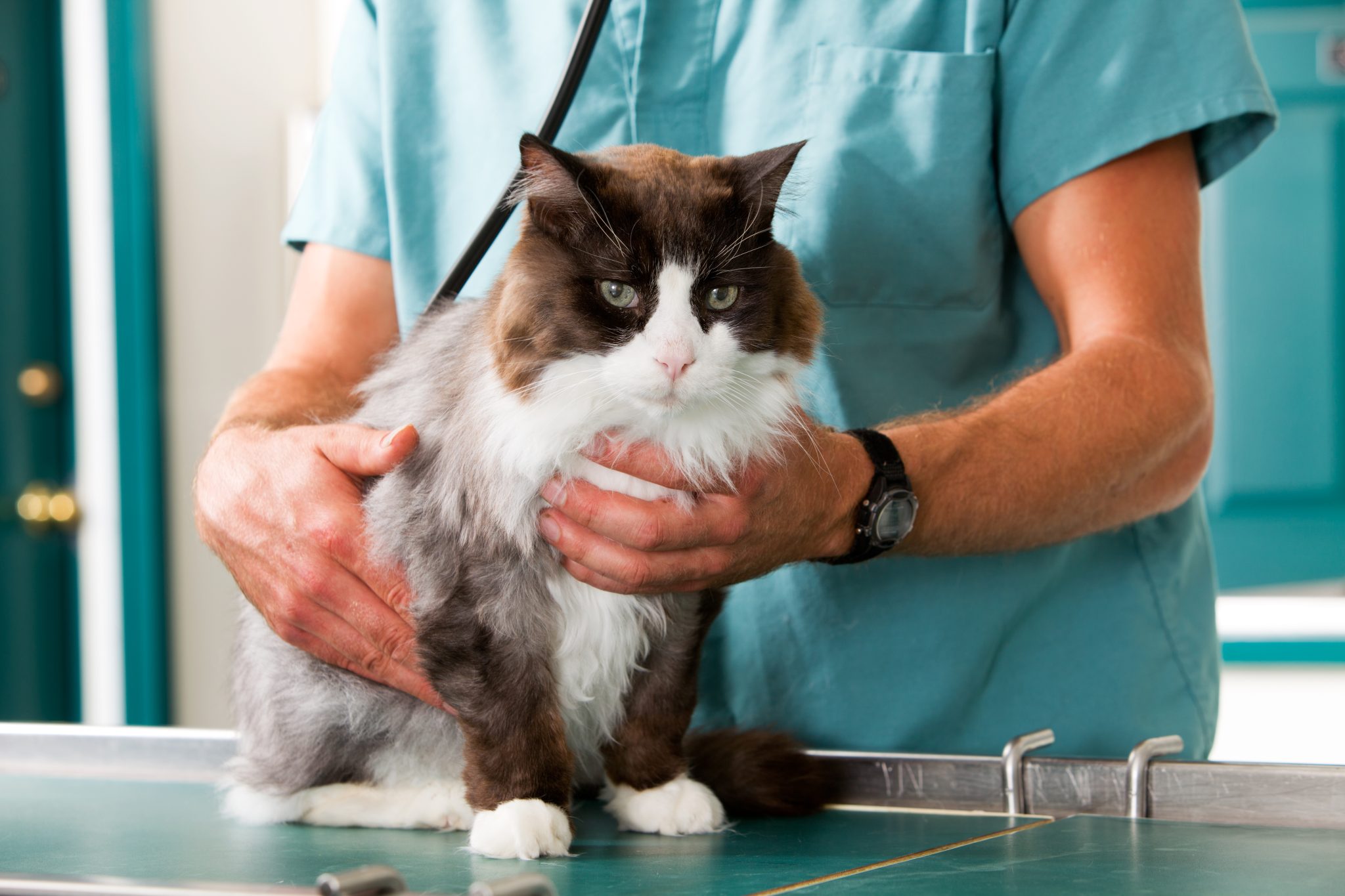
4. Roundworms
Roundworms are intestinal parasites that are very common in cats, especially young cats. They can become infected by contamination with feces that contain roundworm eggs, but kittens can also get them through the milk if their mother has roundworms. These worms may be visible in the stool as long, thin, white to off-white worms.
Roundworms are a scary parasite because they’re zoonotic, which means we can get them from our pets. In people, they can affect our gut, brain, and even eyes, causing blindness.
Treatment
When your kitten comes in for their vaccine visits, your veterinarian may recommend a fecal exam to look for intestinal parasites. They may treat based on that or if you see any parasites in the stool. Common treatments induce pyrantel or fenbendazole (Panacur).
Certain heartworm prevention products, such as Revolution and Revolution Plus, also treat for roundworms.
5. Hookworms
Hookworms are less common than roundworms. They attach to the intestinal lining. They’re usually small, less than half an inch long, and thread-like, making them hard to see in the stool. Hookworms can cause diarrhea, but they can also cause anemia with heavy burdens. You can also get them from your cat (or other infected animals), causing conditions such as cutaneous larval migrans.
Treatment
Your vet can run a fecal exam to look for and treat intestinal parasites based on that. They might use pyrantel or fenbendazole (Panacur) and recommend monthly treatment with Revolution, which also treats roundworms and hookworms.
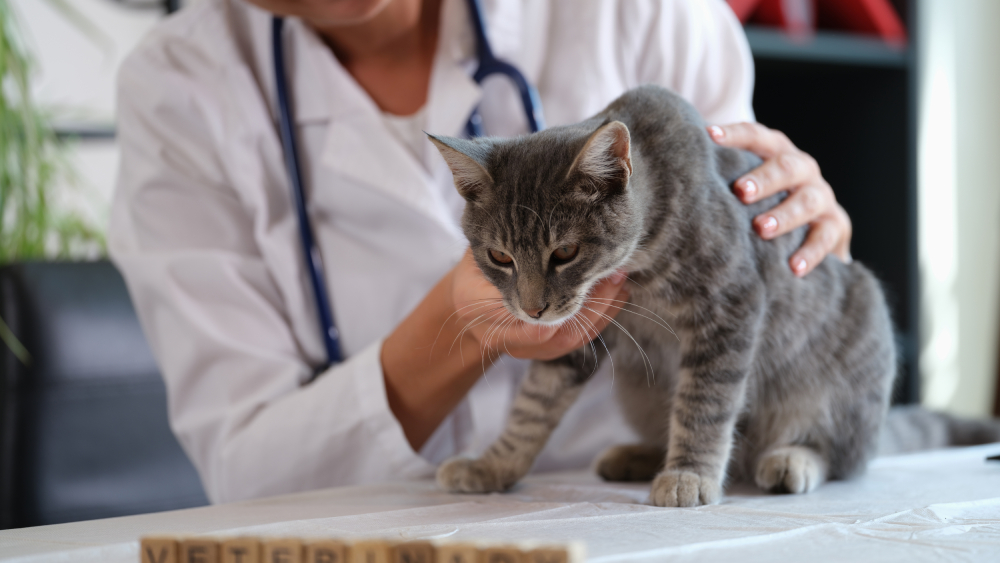
6. Tapeworms
Tapeworms are one of the most notable “creepy crawlies” that can affect our cats because they tend to be the most visible. Cats get infected with tapeworms when they ingest flea-carrying tapeworm larvae, which is another reason to keep your kitty on flea prevention.
Tapeworms live in the intestines, and as segments of eggs mature, they break off from the main worm and pass in the stool. You might see them looking like grains of rice or sesame seeds (if they’re dried out). These proglottid segments may contact and move slightly. You can typically see them around your cat’s rectum or in the stool.
Treatment
You can’t always find tapeworm eggs in fecal samples, so if you see proglottid segments, talk to your vet for treatment options, which could include:
- Praziquantel
- Centex
If you need to speak with a vet but can't get to one, head over to PangoVet. It's an online service where you can talk to a vet online and get the advice you need for your pet — all at an affordable price!

7. Giardia
Giardia infections are more common in younger cats and multi-cat households. These single-celled parasites move characteristically with a tail that whips. Many cats with Giardia don’t show signs of infection, while others may have GI signs such as vomiting or diarrhea. They can have chronic carrier states, where they shed eggs that other cats can become infected with.
Humans can develop Giardia infections, but whether we can get the infection from dogs, cats, or another source is unclear.
Treatment
Giardia is typically diagnosed on a fecal exam, but other tests are also helpful, such as the ELISA snap test. Treatment recommendations vary, but veterinarians usually prescribe metronidazole and fenbendazole for treatment.
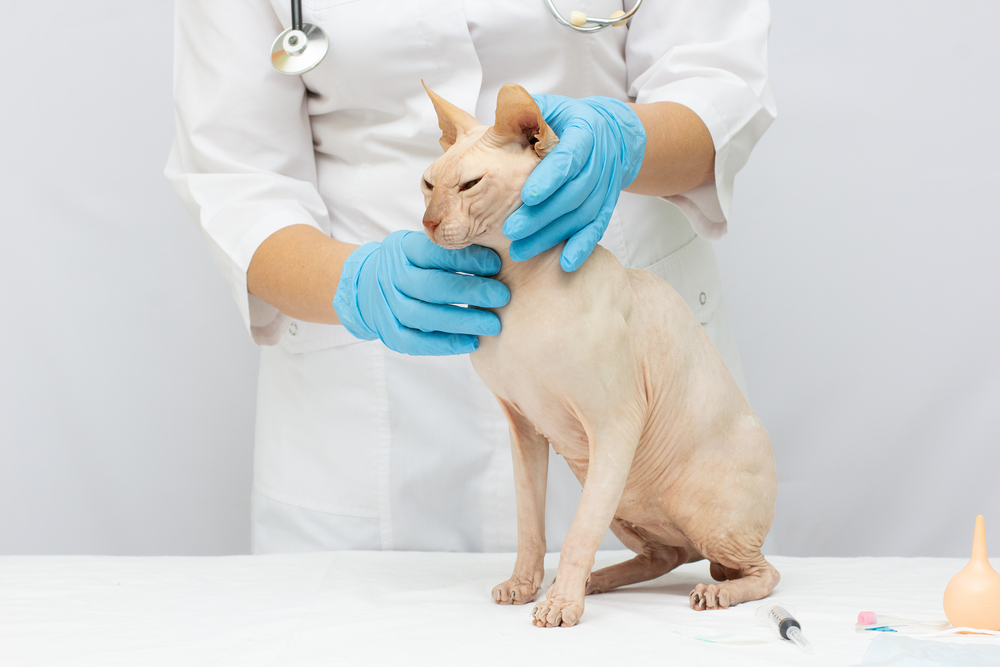
8. Coccidia
Many cats get infected with coccidia, with the species Isospora affecting cats. They get infected by ingesting cysts, and some cases appear to be from a cat eating a roach or fly. Adult cats are often asymptomatic, while kittens typically have watery or mucusy diarrhea as the parasite destroys the lining of the intestines.
Treatment
After your veterinarian diagnoses coccidia on a fecal parasite screening test, they’ll generally treat it with a medication called Albon.
9. Ear Mites
Ear mites are another external parasite that affects cats and dogs. It’s more common in young animals and may be characterized by intense itching or scratching at the ears. Affected kitties often have large amounts of thick, dark, chunky wax in their ears. Sometimes, vets can see ear mites when in with an otoscope, especially if they’re moving, but usually, they need to be seen under a microscope.
Treatment
Your veterinarian may treat your cats topically with medication like Milbemite after thoroughly cleaning their ears. Another option is Revolution or Revolution Plus, which treat and kill ear mites.
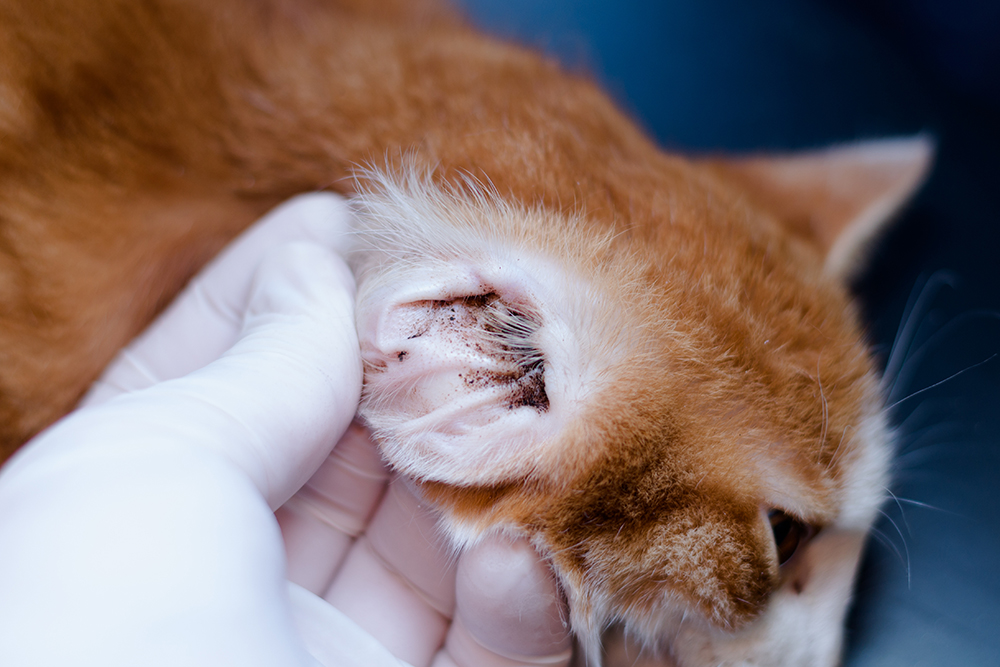

Frequently Asked Questions
What is the most common intestinal parasite in cats?
Roundworms are the most common intestinal parasites found in cats. According to the Cornell Feline Health Center, 25% to 75% of cats have been infected with roundworms. It’s more common for them to be infected when they’re younger.
How common are intestinal parasites in cats?
GI parasites may affect up to 45% of cats. Cats are often younger when infected, but outdoor cats and those that hunt may also be at a higher risk.

Conclusion
Dealing with parasites is an unfortunate fact of life when you own a pet, especially when they’re a kitten. Work with your veterinarian to establish an effective preventative care plan, as that’s the best way to decrease the risk of infection with internal or external parasites.
See Also:
- Botflies in Cats: Signs, Causes & Care (Vet Verified)
- Pyrantel for Cats: Dosage, Uses, Side Effects (Vet Answer)
Featured Image Credit: Susan Santa Maria, Shutterstock






